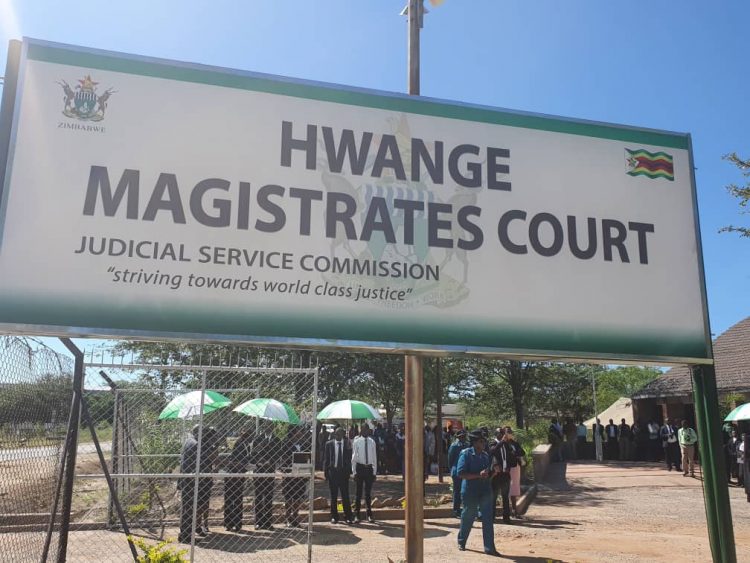By Romio Takundwa
The trial of Hwange’s Dinde Residents Association vice chairperson, Never Tshuma, who was arrested for allegedly inciting the community against a proposed coal project in Dinde was yesterday postponed to the 17th of June.
This was after the state failed to bring affidavits before the courts for the trial to commence.
Tshuma was arrested last month on charges of allegedly inciting public violence after addressing a community gathering in Dinde.
He allegedly urged the community to resist forced evictions from their ancestral land and pave way for coal mining and thermal power project, ordering them uproot tents that were pitched by the Chinese mining company, Beifa Investments.
Tshuma’s lawyer Jolyn Change confirmed to Bustop TV that her client appeared in court yesterday, Monday but could not be tried as the state was not prepared.
“The magistrate told my client to come back on the 17th of next month to appear in court as the state had not bring forward all the necessary paperwork for trial to commence,” she said.
Dinde which is located in Hwange, Matabeleland North Province is facing imminent displacement to pave way for the coal mining and thermal power project. The project is owned by some Chinese nationals incorporated as Beifa Investments.
The Chinese owned mining firm reportedly told the community it has no financial resources to fund relocation and building of standard infrastructure for the affected families.
If implemented the project is going to destroy at least 13 schools, a dip tank, thousands of homesteads, cultural heritage sites which include the gravesite of local traditional chiefs and several cemeteries.
Speaking to Bustop TV, Hwange Constituency MDC legislator, Daniel Molokele urged the state to withdrew charges against Tshuma and promote dialogue over the matter.
“It was quite unfortunate that he (Tshuma) was isolated and victimized, there was no need for anyone to be arrested because the community was trying to express its own point of view.
“We should not use the law or abuse the law to discuss political issues. It is my hope that the state might not continue with the charges.
“I think we should focus on consultations, engagements, dialogue and avoid using the courts so that we find a common way forward that fits both the investor and the community,” said Molokele.
